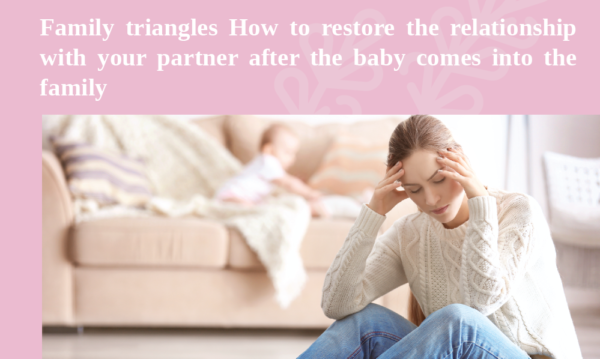The arrival of the child in the family requires necessary adjustments to the couple’s life. Changes and modifications in their schedules and presence are essential to meet the immediate needs of the baby. Those who have already found a healthy balance in their relationship are more easily adapted to these changes. On the other hand, for parents who are not in this position, these changes may appear to be abnormalities that may take the form of physical or even emotional tension. When these pressures occur, new parents can follow these suggestions:
1. Put someone you trust to look after the child and find a warm, neutral place outside your home, where you will sit and talk comfortably and honestly the two of you. Without being in a hurry, confide in your feelings, even your bitterness and frustrations, your fears, and your weaknesses. Most likely, in such situations, your common dreams will seem to fade. The child has taken over all your space and time. This period can be particularly tough for fathers, who are usually not as closely related to the child as the mother. Fathers need to know that they are necessary, desirable, and important. Women are the link that will create and cultivate the bond between father and baby.
2. Express in words how important you are to each other and what hope you have for each other and with each other. That will help you renew your self-esteem so that you can join forces and get along positively with each other and with your child. After this exact conversation, you can set a few hours for your reunion each day, as well as for something special every week. Maintaining contact with each other and the first place it should take in your life are critical steps in fulfilling your parenting task. That requires constant commitment and conscious dedication. Fear of losing autonomy may also come to the surface. “Is there a little time for me too?” Couples consciously need to arrange their time so that everyone has a little for themselves. For this to work, you need to express this need and then seek your partner’s cooperation (and later other members of your family). The prospects are good, and solutions can be found, but you have to ask for it and plan it.
3. Try to understand whether you are acting against yourself or the other. If this is the case, highlight the difficulty.
Without a doubt, two people who care about each other can use their powers to work together and make things better for them, their relationship, their child, or their children.
Bibliography:
Virginia Satir, (1988). Peoplemaking. Mountain View, California


